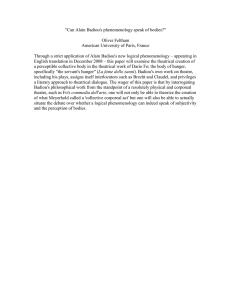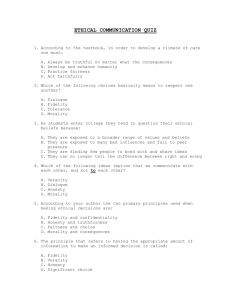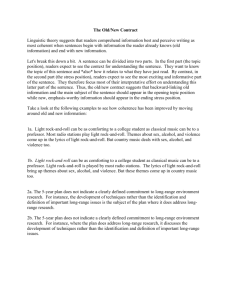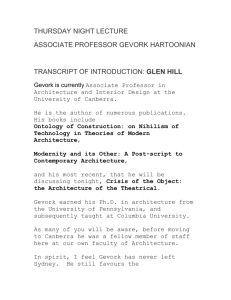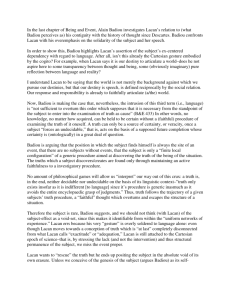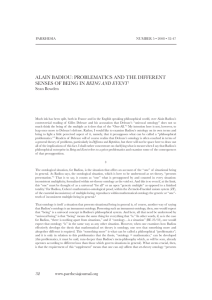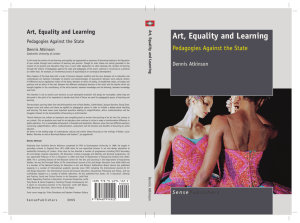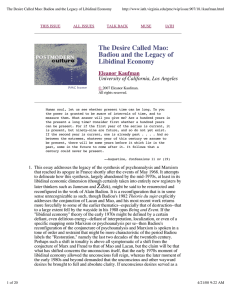W10-2 Badiou on Truth as Ethics
advertisement
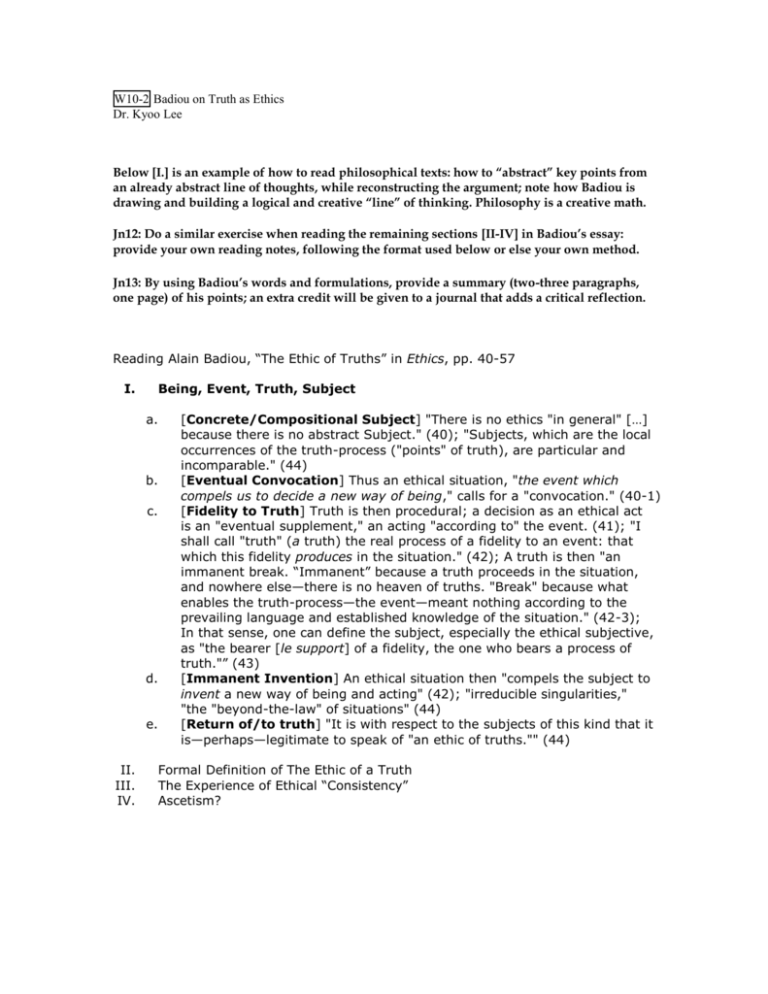
W10-2 Badiou on Truth as Ethics Dr. Kyoo Lee Below [I.] is an example of how to read philosophical texts: how to “abstract” key points from an already abstract line of thoughts, while reconstructing the argument; note how Badiou is drawing and building a logical and creative “line” of thinking. Philosophy is a creative math. Jn12: Do a similar exercise when reading the remaining sections [II-IV] in Badiou’s essay: provide your own reading notes, following the format used below or else your own method. Jn13: By using Badiou’s words and formulations, provide a summary (two-three paragraphs, one page) of his points; an extra credit will be given to a journal that adds a critical reflection. Reading Alain Badiou, “The Ethic of Truths” in Ethics, pp. 40-57 I. Being, Event, Truth, Subject a. b. c. d. e. II. III. IV. [Concrete/Compositional Subject] "There is no ethics "in general" […] because there is no abstract Subject." (40); "Subjects, which are the local occurrences of the truth-process ("points" of truth), are particular and incomparable." (44) [Eventual Convocation] Thus an ethical situation, "the event which compels us to decide a new way of being," calls for a "convocation." (40-1) [Fidelity to Truth] Truth is then procedural; a decision as an ethical act is an "eventual supplement," an acting "according to" the event. (41); "I shall call "truth" (a truth) the real process of a fidelity to an event: that which this fidelity produces in the situation." (42); A truth is then "an immanent break. “Immanent” because a truth proceeds in the situation, and nowhere else—there is no heaven of truths. "Break" because what enables the truth-process—the event—meant nothing according to the prevailing language and established knowledge of the situation." (42-3); In that sense, one can define the subject, especially the ethical subjective, as "the bearer [le support] of a fidelity, the one who bears a process of truth."” (43) [Immanent Invention] An ethical situation then "compels the subject to invent a new way of being and acting" (42); "irreducible singularities," "the "beyond-the-law" of situations" (44) [Return of/to truth] "It is with respect to the subjects of this kind that it is—perhaps—legitimate to speak of "an ethic of truths."" (44) Formal Definition of The Ethic of a Truth The Experience of Ethical “Consistency” Ascetism?
